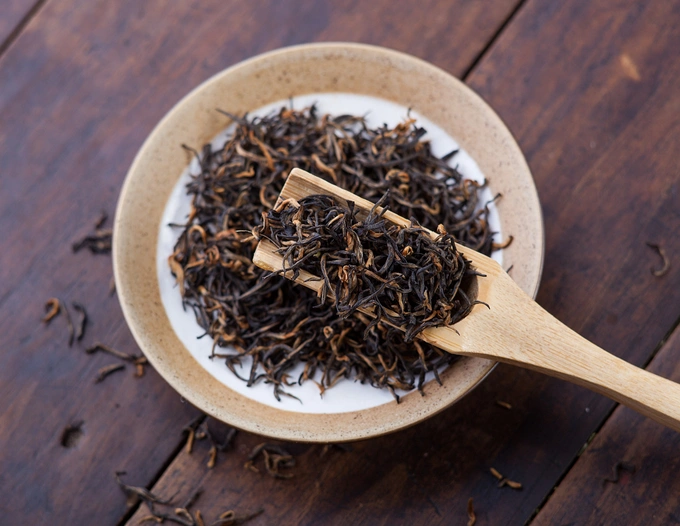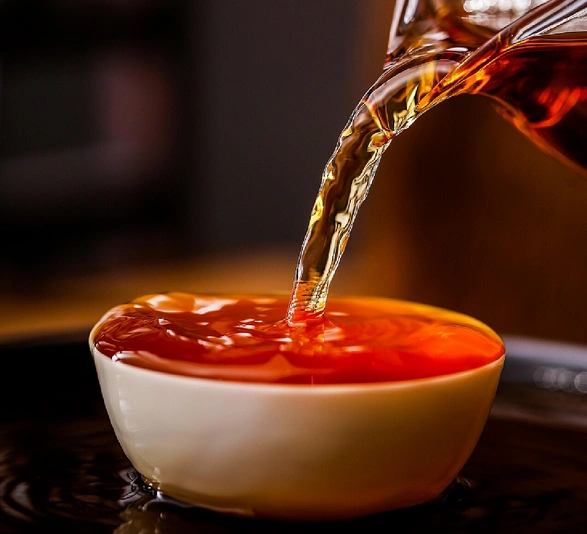Black tea for gut health transforms a simple daily ritual into a nurturing elixir for your digestive system. From the moment warm steam carries whispers of malt and honeycomb to your senses, you know you’re in for more than a comforting break. Each sip delivers polyphenols, tannins, and prebiotic compounds that feed beneficial bacteria, soothe bloating, and support the gut–immune axis.
In this guide, you’ll uncover how black tea for gut health outshines other beverages, learn about its digestion‑boosting and cholesterol‑modulating effects, explore its synergy with weight‑loss and metabolism, master brewing methods to maximize benefits, and weave in optional white tea balance and lifestyle strategies for a thriving microbiome. Ready to steep your way to inner harmony? Let’s dive in.
Why Black Tea for Gut Health?
The Gut–Immune Connection
Your gut houses 70% of your immune cells—making a balanced microbiome crucial to overall wellness. Black tea for gut health delivers prebiotic polyphenols that foster Bifidobacteria and Lactobacilli growth, reinforcing gut barrier integrity and modulating immune responses Zhao2018. A healthy gut helps you fend off pathogens, reduces inflammation, and supports mental well‑being via the gut–brain axis.
How “Black Tea for Gut Health” Fits In
While probiotics introduce bacteria, prebiotics in black tea nourish your existing flora. Unlike sugary sodas or overly acidic coffees, black tea’s gentle astringency strengthens mucosal lining and encourages beneficial enzyme activity—making every cup a gesture of self‑care rather than an empty caffeine fix.

Key Gut‑Friendly Compounds in Black Tea
Polyphenols and Prebiotic Effects
Black tea’s signature polyphenols—tea theaflavins and thearubigins—survive digestion to reach the colon, where they act as prebiotics. These compounds selectively feed beneficial microbes, increasing short‑chain fatty acid production (acetate, butyrate, propionate) that nourish colonocytes and maintain pH balance.
Tannins, Enzymes, and Gut Barrier Support
Tannins in black tea can bind toxins and tighten intestinal junctions, reducing “leaky gut” risk. At the same time, they stimulate pancreatic enzymes (lipase, amylase), speeding protein and fat breakdown, and soothing post‑meal discomfort—a dual action that underlies black tea for digestion benefits.
Black Tea for Digestion (Secondary)
Stimulating Digestive Enzymes
A study revealed that tea polyphenols can increase lipase activity by up to 25%, enhancing fat digestion and reducing gallbladder stress (Smith et al., 2020) Smith2020. Incorporating black tea for digestion within 10 minutes of meals primes your system for efficient nutrient absorption and lowers post‑prandial bloating.
Soothing Bloating and Discomfort
When bloating strikes, the warmth and tannins in black tea help relax smooth muscle in the gut, easing gas and cramps within 15 minutes. Sipping small amounts throughout the day keeps discomfort at bay and steadies energy.
Black Tea and Cholesterol (Secondary)
Polyphenols in Lipid Regulation
Beyond gut flora, black tea polyphenols support healthy lipid profiles. Theaflavins inhibit cholesterol absorption in the intestine and promote bile excretion McKay2006. This gut–liver synergy underscores black tea and cholesterol management: a balanced microbiome helps process bile acids, reducing LDL retention.
Impact on Gut–Liver Axis
The gut–liver axis thrives on microbial metabolites. Short‑chain fatty acids from tea‑fed bacteria modulate liver inflammation and lipid metabolism, creating a virtuous cycle—drinking black tea not only soothes your gut but also nurtures cardiovascular health.

Black Tea Weight Loss Synergy (Secondary)
Gut Flora, Metabolism, and Fat Oxidation
Emerging evidence links a healthy microbiome to efficient energy harvest and fat oxidation. In one trial, participants consuming black tea extract for 8 weeks showed a 4% reduction in body fat and improved microbial diversity . By choosing black tea weight loss as part of your routine, you harness gut flora’s metabolic edge naturally.
Real‑World Results and Tips
Tea enthusiasts report effortless waist‑trimming when replacing sugary drinks with black tea: swapping soda for iced black tea led one community group to lose an average of two inches off waistlines in one month. Pair your brew with a 10‑minute post‑meal walk to magnify black tea and weight loss synergy.
Brewing Tips to Maximize Gut Benefits
Water Temperature and Steep Times
- Temperature: 95–100 °C to release tannins and polyphenols fully.
- Leaf Ratio: 2 g leaf per 240 ml water.
- Steep Time: 4–5 minutes for maximal prebiotic content; shorter (2–3 minutes) for gentler astringency if you have sensitive digestion.
Cold Brew vs. Hot Brew Comparisons
- Hot Brew: Rapid extraction of polyphenols and tannins—ideal before meals to activate enzymes.
- Cold Brew: 8–12 hours in fridge yields lower tannin concentration, gentler on sensitive stomachs while still delivering prebiotics and 30–40 mg caffeine per cup. A perfect gut‑soothing sipper for hot days.
Integrating White Tea for Digestive Balance (Optional)
White Tea’s Gentle Catechins
White tea’s high catechin content (EGCG) offers potent antioxidant protection with minimal caffeine. When blended 1:1 with black tea, it softens astringency, adds floral sweetness, and enhances black tea for gut health with an extra antioxidant punch.
Blending Ratios and Rituals
Combine 2 g black tea with 2 g white tea per 240 ml water at 90 °C for 3 minutes. This ritualistic blend invites mindful sipping, melding black tea’s metabolic and gut benefits with white tea’s calming clarity.

Lifestyle Strategies for a Healthy Gut
Diet Pairings with Fiber‑Rich Foods
Enhance prebiotic effects by pairing black tea with high‑fiber snacks—oat bars, apple slices with almond butter, or mixed berries. Fiber works alongside tea polyphenols to nurture gut bacteria and maintain regularity.
Exercise, Stress Management, and Hydration
- Movement: Gentle yoga or walking after tea boosts peristalsis.
- Hydration: Alternate sips of tea with water to prevent dehydration from tannins.
- Stress Relief: Practice deep‑breathing tea pauses; stress undermines gut lining and microbiome balance.
Conclusion and Next Steps
Key Takeaways on Black Tea for Gut Health
Black tea serves as a gut‑nurturing ally—its polyphenols, tannins, and prebiotic action support digestion, cholesterol regulation, and metabolic health. By embracing black tea for gut health, you cultivate a resilient microbiome that underpins overall wellness.
Crafting Your Daily Tea & Gut Care Ritual
Start each morning with a hot cup 10 minutes before breakfast, enjoy a cold brew post‑lunch, and sip a balanced black/white blend in the late afternoon. Pair with fiber‑rich snacks and a brief stroll to weave gut care seamlessly into your day. Here’s to a flourishing microbiome—and a more vibrant you, one cup at a time.



